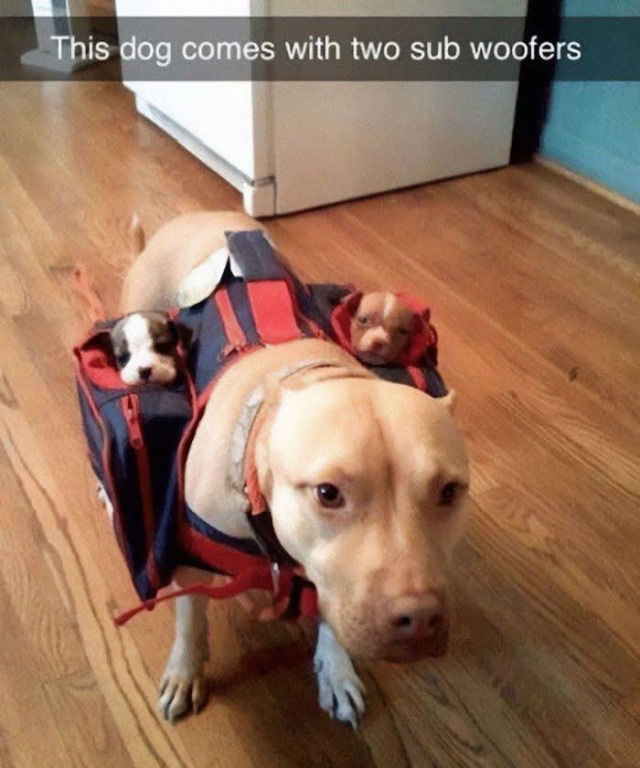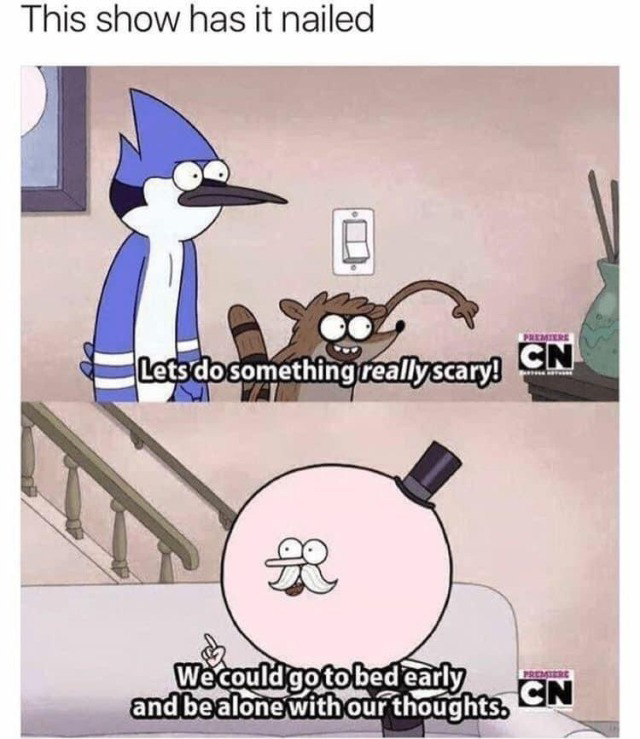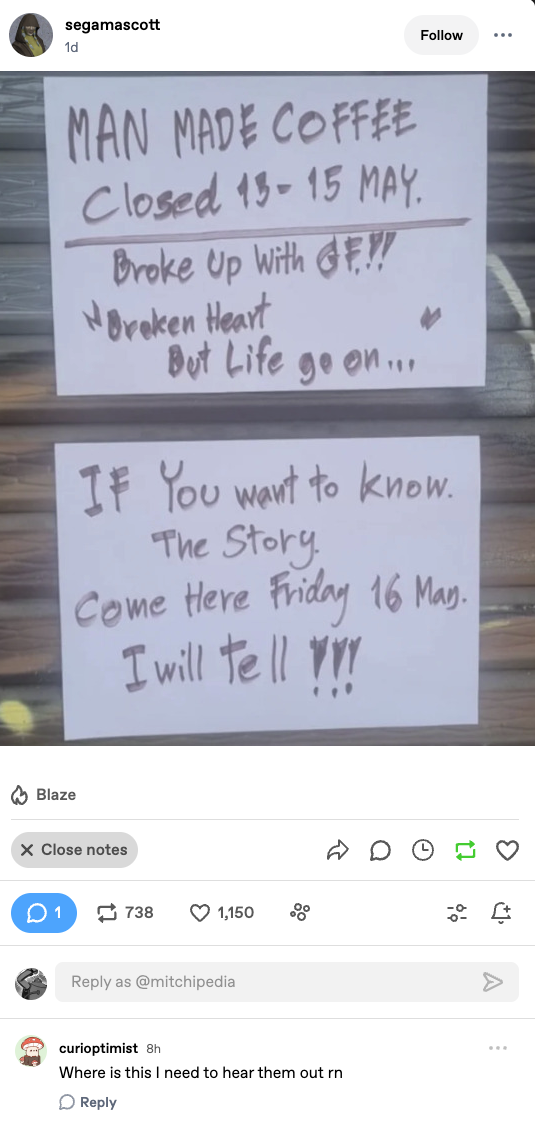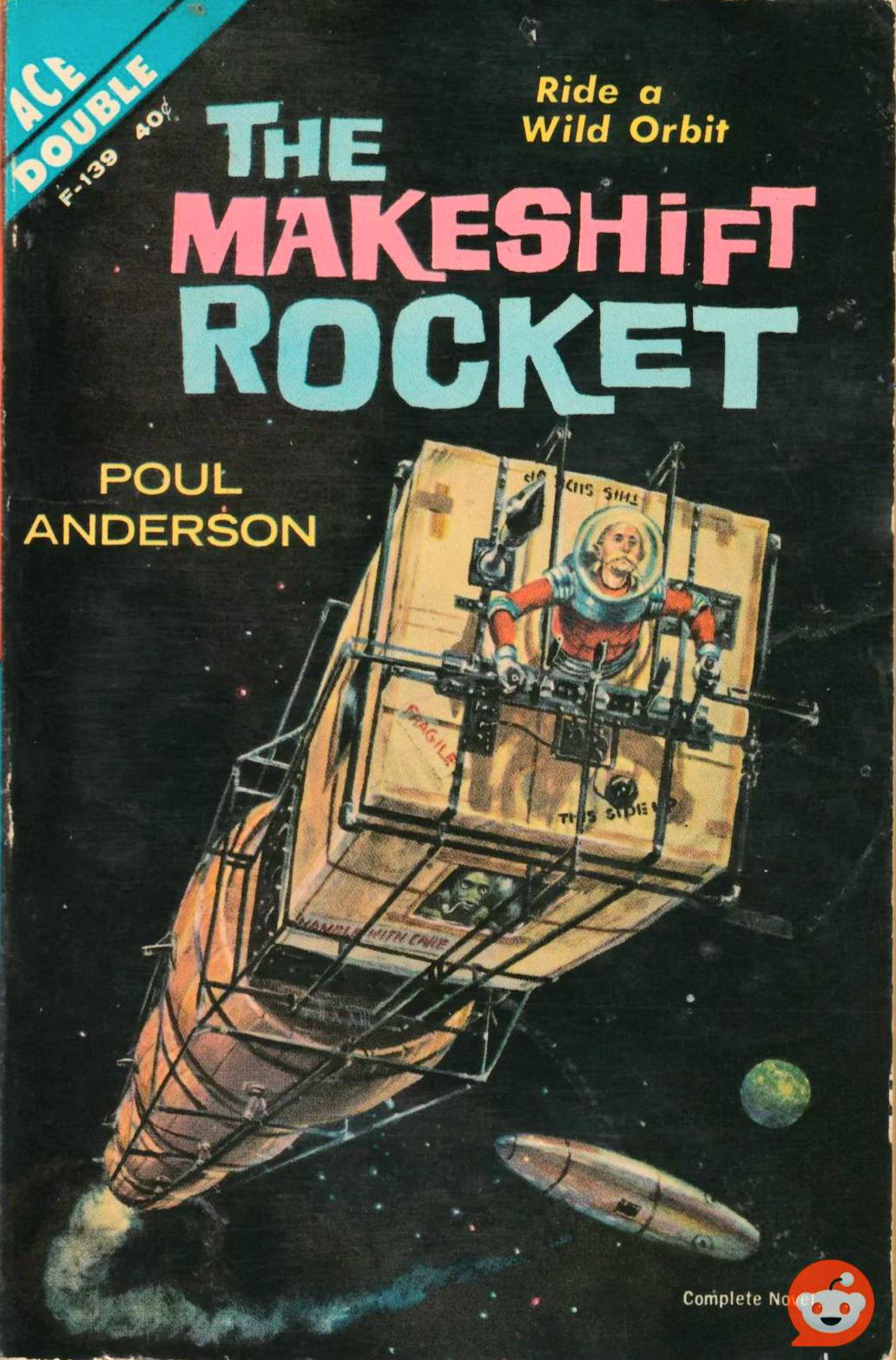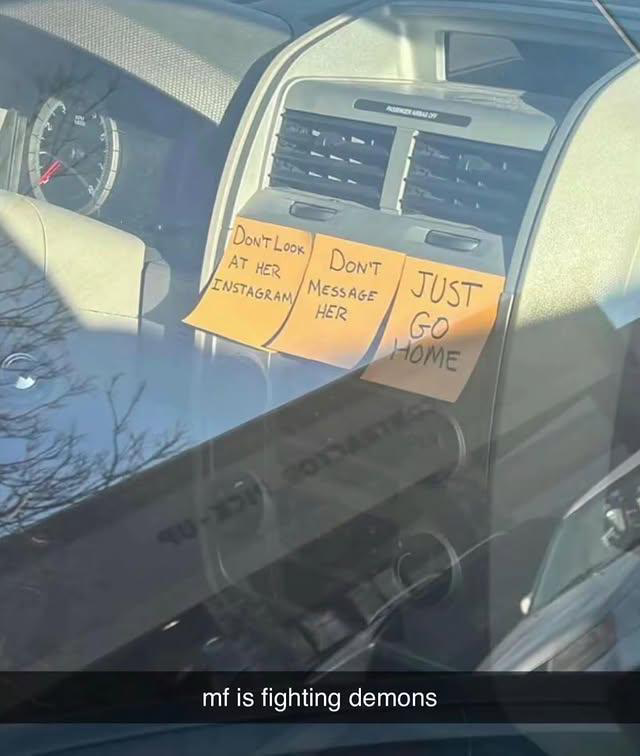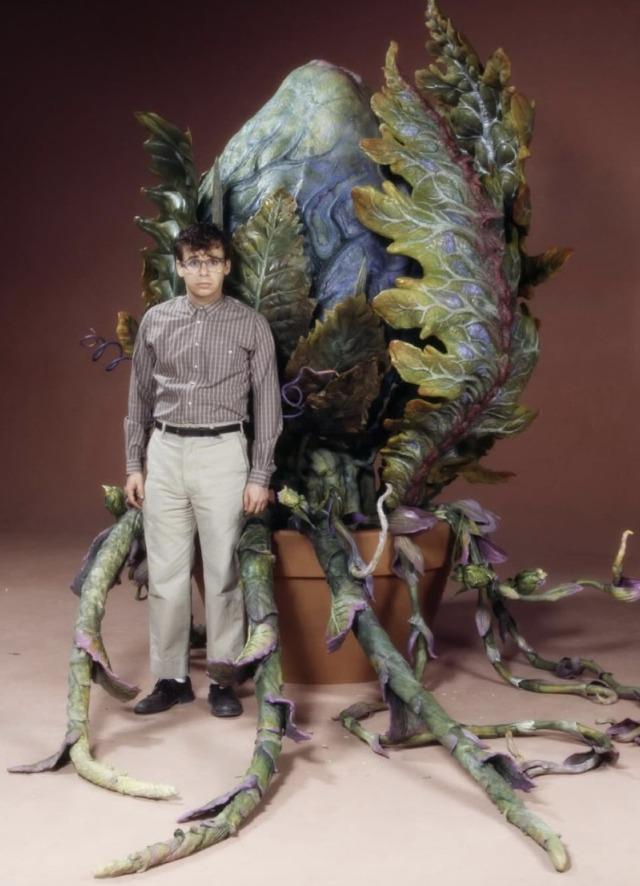🤖 Mitch's newsletter
Mitch's Blog
Yep, I'm faceblind
Faceblindness, technically called prosopagnosia, is the inability to recognize faces. I think I first learned about this condition in 2019, in this Washington Post article, and I said, “Yes, that’s me!” I often fail to recognize people I’ve met before.
Lately I’ve been second-guessing my self-diagnosis. While I often fail to recognize people, that is usually not the case. Usually I do recognize folks.
Last week, I listened to this interesting episode of the Revisionist History podcast, which talked about faceblindness and its opposite — super-recognizers, with extraordinary ability to remember the faces of people they’ve met once briefly, or even just seen in a photograph for a few seconds years before.
The podcast shownotes included two links to tests for faceblindness:
troublewithfaces.org
Cambridge Face Memory Test
The first test asked questions about my opinion of how well I recognize faces. I scored 65. The test result said that people who score below 70 may have “developmental prosopagnosia” (whatever that is). I considered this test non-definitive.
When I took the second test, holy crap did I score terribly!
The test was in two rounds. The first round showed dozens of faces of people who appeared to be white men, with their hair and ears cropped away from the photos. This is important because faceblind people often look at hairstyles and ear shape as clues for facial recognition. All the men had approximately the same skin color — again, skin color being another gross clue that faceblind people can use to identify faces.
The first batch of photos showed one face at a time, three views — full face, turned a little to the left and a little to the right. I concentrated on the shapes of the chins. One face had a cleft chin, another a pointy chin, another a round chin, another seemed to have a featureless chin.
I thought I maybe did OK on that round of questions.
The second round of photos was different.
For each of the second round, the test showed six of those hairless, earless faces, and asked me to memorize them. Then, the test showed three faces, and asked me to pick the one that had appeared in the previous array of photos.
After going through one or two of those questions, I grinned, because I had absolutely no idea which face appeared in the previous series. The faces did appear different from each other. But I was unable to fix in my mind how they were different. The instant the faces disappeared from the screen, the visual memory of those faces disappeared from my mind. I was guessing entirely at random.
The results page told me that the average score on the test was 80%. A score of 60% or lower “may indicate facebliindness,” the test results page said. My score was 35%.
I am weirdly pleased and proud of this. If I’m going to fail a test, I want to fail spectacularly badly.
So how is it that I am able to recognize faces most of the time? The same way everybody with faceblindness does: Contextual clues. I remember hairstyles, height, build, glasses, skin color, people’s habitual clothing styles. Facial blemish.
Location is a big clue. If I’m expecting to see a person in a particular location and time, I can usually recognize that person.
The other day, I arrived at a dinner in a private room of a local restaurant. I was early — the second person there. I instantly recognized the person who arrived before me. I recognized her skin color, complexion, the shape of her face, her hairstyle. In a social group where many of us wear T-shirts, she is usually dressed nicely — that was a big clue. And she was one of a half-dozen people I expected to attend that dinner. I recognized her easily and greeted her warmly.
Now imagine the same restaurant, if I did not expect to see this woman. Same woman, dressed the same. She recognizes me and greets me — and that’s probably going to be the way it happens, because I am probably not going to recognize her if I am not expecting to see her. In that circumstance, as we talk, I might recognize her voice, which is distinctive. I’ll pick up on clues like her dress, hairstyle, shape of her face, height and so on. Likely she’ll drop a hint in the conversation by mentioning the community association we’re both on the board of. Given that information, I can often recognize a person. And maybe she doesn’t drop that hint, and we talk for a few minutes and then Julie asks me who she was and I say, “I have no idea.”
How do I cope with the disability of faceblindness?
I deal. It’s all I know. It’s not a disability at all. I have led a successful, even privileged life. I have my compensation mechanisms and I do fine.
On the other hand, I have been an introvert my whole life, and have strugged with that, and I think my faceblindness has something to do with that.
But as far as I know, there is nothing I can do about being faceblind, so I live with it and am grateful for my many other blessings.
Wouldn’t we all rather have the possibility of finding pleasure and delight in literally anything we might encounter? Instead of assuming that actually there are only these three things where pleasure and delight are possible. Like oh, it’s television and socialization and work, and then everything else is the smoke I have to somehow choke my way through in order to get to the good parts.
— Ian Bogost
"This post was a journey"
A Redditor discovers her health-obsessed boyfriend has an odd and disturbing habit. She wants to know whether to leave him.
I think this comment nails it: The boyfriend probably has an eating disorder, and because he is, she says, otherwise a good guy, she would be justified in sticking around to see if he is willing to get treatment and work on it.
What Did People Do Before Smartphones? No one can remember
In the idle time we now spend on our phones, people used to read anything and everything they saw—junk mail, subway ads, the backs of cereal boxes, the story on the restaurant placemat, the labels on the condiments.
I used to carry a book or magazines with me when I went out. Now I still do — they’re on my phone.
Also:
I cannot overemphasize how little there was to do before we all had smartphones. A barren expanse of empty time would stretch out before you: waiting for the bus, or for someone to come home, or for the next scheduled event to start. Someone might be late or take longer than expected, but no notice of such delay would arrive, so you’d stare out the window, hoping to see some sign of activity down the block.
Season 2 of “The Last of Us:” Yes or no?
Trump Praised Himself During Memorial Day Speech Political Wire
Mitchellaneous Vol. LXXIII : Ten things I found on the Internet
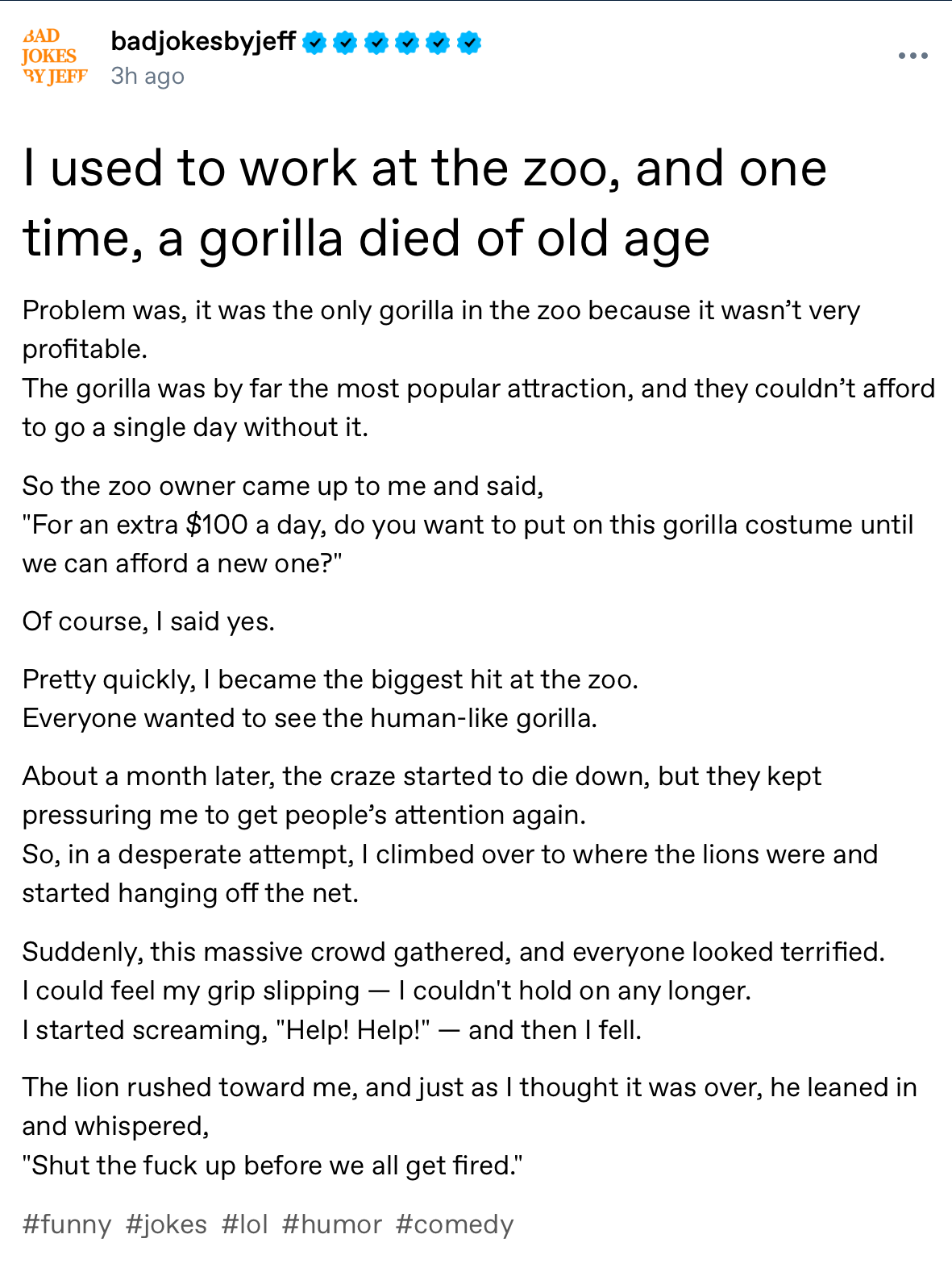

Weird Tales #167 December 1937 (Popular Fiction)
